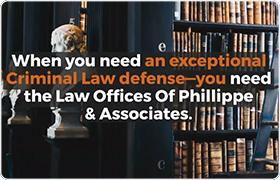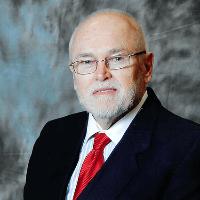La Feria Criminal Lawyer, Texas
Sponsored Law Firm
-
 x
x

Click For More Info:
-
The Law Office Christopher Phillippe
104 North Express Way Brownsville, TX 78521» view mapCriminal Defense Law Helping Those Facing Difficult Times
We are confident in our ability to resolve difficult legal issues, and we will use our years of experience to represent your best interests.
800-659-6781
Noe Robles
Juvenile Law, Employee Rights, Family Law, Criminal
Status: In Good Standing Licensed: 42 Years
Larry Logan Warner
Criminal, State Appellate Practice, Family Law, Real Estate, Other
Status: In Good Standing Licensed: 51 Years
FREE CONSULTATION
CONTACTJoseph Moreno
Education, Entertainment, State Appellate Practice, Criminal
Status: In Good Standing Licensed: 19 Years
Daniel Antonio Sanchez
Family Law, Criminal, Personal Injury, Accident & Injury
Status: In Good Standing Licensed: 26 Years
Robert Davis
Criminal, Wills, Litigation, Personal Injury
Status: In Good Standing Licensed: 11 Years
Jodilyn Marie Goodwin
Immigration, Social Security, Family Law, Criminal
Status: In Good Standing Licensed: 29 Years
James Robert Young
International, Gift Taxation, Criminal
Status: In Good Standing Licensed: 18 Years
Theodore Robert Cory
Litigation, Criminal, Insurance, Personal Injury
Status: In Good Standing Licensed: 17 Years
Seferino Islas Trevino
Immigration, Family Law, Criminal, Consumer Bankruptcy
Status: In Good Standing Licensed: 41 Years
 Christopher Phillippe Brownsville, TX
Christopher Phillippe Brownsville, TX Practice AreasExpertise
Practice AreasExpertise
